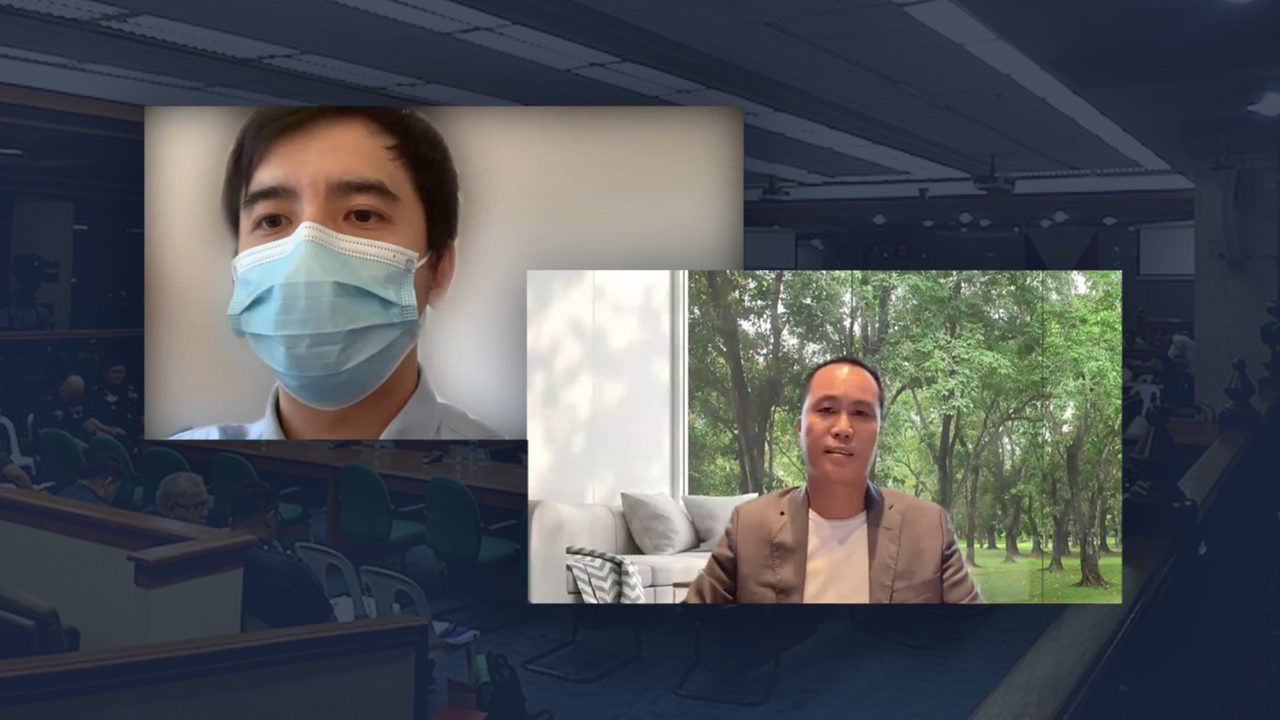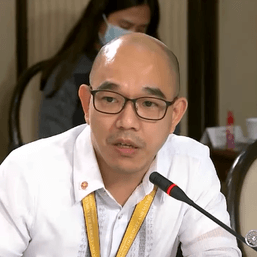SUMMARY
This is AI generated summarization, which may have errors. For context, always refer to the full article.

MANILA, Philippines – The Supreme Court just nullified old Senate orders from 2022 that resulted in the arrest and detention of perhaps the most infamous cast of characters – officials of pandemic contractor Pharmally Pharmaceutical Corporation who were accused of “swindling” the government of funds that could have gone to COVID-19 response.
Was the Supreme Court protecting bad guys, or is Pharmally – and before it, a fratman involved in the killing of a law student – just perceived to be a “bad” plaintiff benefiting from an otherwise good law?
The issue is the legislature’s special power of contempt, which gives the Senate the power to hold someone in contempt during an inquiry, to arrest them, and even detain them in the premises. This power has to be balanced by the constitutional right of every person to be free, unless detained by a judge for a case that has gone through the rules of court.
Pharmally director Linconn Ong, and their financier Michael Yang, a former Duterte adviser, were held in contempt and ordered arrested by the Senate blue ribbon committee when senators flared at the men’s “evasiveness.”
It was a months-long Senate inquiry that gripped the nation because Pharmally, it turned out, was a new company with little capital that ended up cornering the biggest contracts for the government’s pandemic response. What made it more anomalous was that these projects had links to budget officials from Davao, and ultimately by virtue of Yang, to former president Rodrigo Duterte himself.
Ong ended up being sent to a Pasay City jail, as Yang evaded the Senate warrant.
SC voids the orders
In a new decision, the Supreme Court voted 13-2 to void the Senate orders against Ong and Yang, saying that the upper house committed grave abuse of discretion.
The decision, penned by Associate Justice Henri Jean Paul Inting, said that the senators could not have determined evasiveness based on just a number of hearings, as evasiveness, the justices said, is determined with a totality of evidence.
“Legislative inquiries do not share the same goals as the criminal trial process, and cannot be punitive in the sense that they cannot result in legally binding deprivation of a person’s life, liberty or property. Thus, punishment for legislative contempt…must similarly observe the minimum requirements of due process,” said the decision promulgated last March, but released only recently.
It’s not the first time that the Supreme Court reminded the Senate that its powers are not unlimited. When the Senate detained a fraternity leader when they were inquiring into the hazing death of UST law student Atio Castillo, the Supreme Court said the Senate can detain a person held in contempt for only as long as the inquiry was ongoing.
Ong was detained for almost seven months, and released only when the 18th Congress ended in June 2022. The Pharmally hearings ended before that.
While Pharmally and an Aegis Juris fratman may be considered “bad” plaintiffs because of their unpopularity, limiting the Senate’s contempt powers may be good law.
Concurring Justice Marvic Leonen said “to immediately adjudge a testimony as evasive during an inquiry in aid of legislation would be to straitjacket the exercise of freedom of speech.” It has a chilling effect, Leonen said in his separate opinion.
Chief Justice Alexander Gesmundo, who concurred in the Pharmally decision and wrote the Aegis Juris decision, said in his opinion: “Although an inherent power of legislative contempt exists and is broad in scope, it is subject to limitations that safeguard constitutionally guaranteed freedoms.”
A rule like this could be seen as protecting the “bad” plaintiffs now, but could also benefit “good” people down the road.
Dissenting Justice Benjamin Caguioa, however, highlighted the public interest in the case.
Caguioa said that the Senate gave all the due process it needed to give to Ong and Yang before they determined that the two were being evasive. To hold them in contempt and detain them based on their determination of evasiveness was important because, for Caguioa, it had “far-reaching implications to the public.”
“In this particular case, the magnitude of the matter being investigated should not be lost on the Court – the billions of public funds spent on the pandemic response,” said Caguioa in his separate opinion.
He added: “The Court should not hastily rule in a manner that erodes the authority of a coequal branch; rather, it should exercise prudence in reviewing the exercise thereof by taking conscious consideration of the public interest involved.” – Rappler.com
Add a comment
How does this make you feel?
![[WATCH] Bamban POGO scandal: There’s a bigger fish than Alice Guo](https://www.rappler.com/tachyon/2024/07/inside-track-tcard-bamban-pogo.jpg?resize=257%2C257&crop=435px%2C0px%2C1080px%2C1080px)







There are no comments yet. Add your comment to start the conversation.